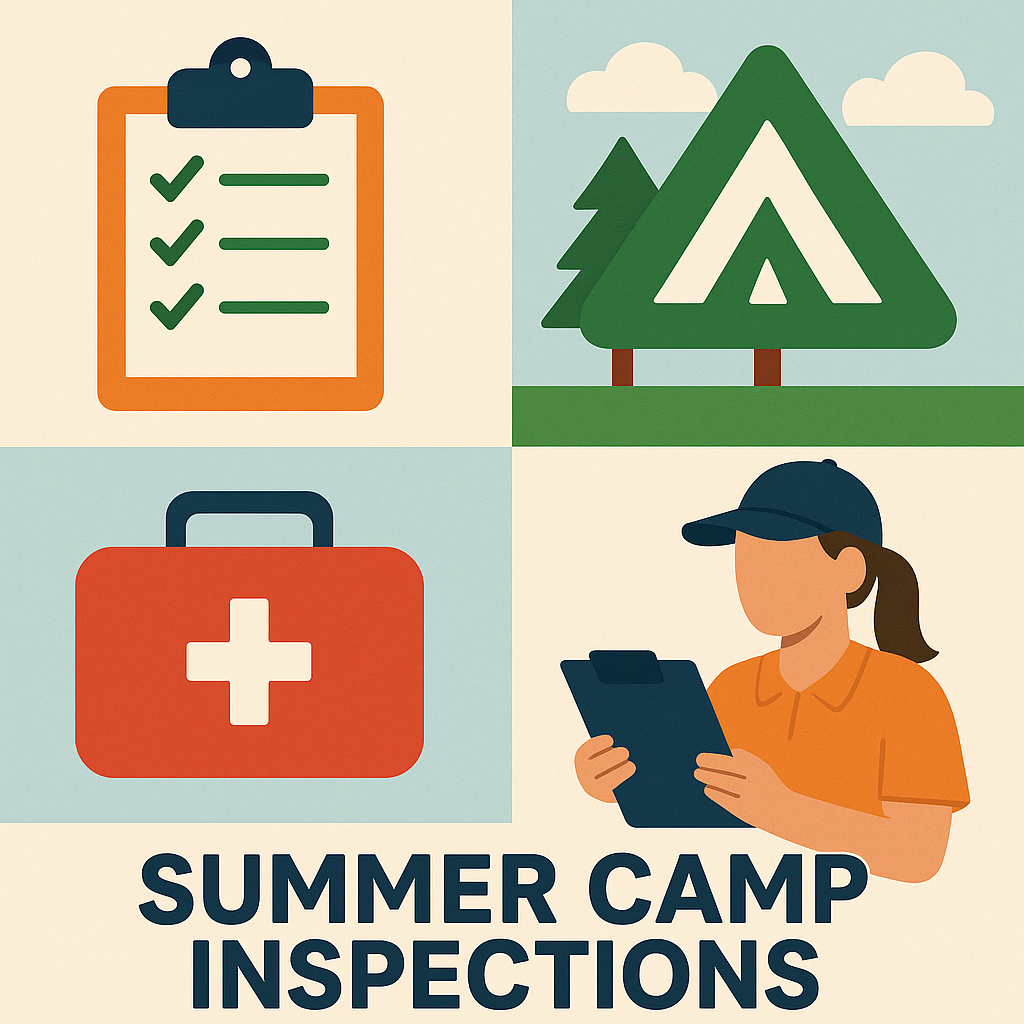While Wayland’s summer camps offer hundreds of children opportunities to play and learn, ensuring those camps meet strict health and safety standards is a job that happens essentially behind the scenes while camp is going on as well as before the season. Wayland’s Board of Health oversees inspections and permitting for all recreational camps in town to make sure they meet Massachusetts state code for recreational camps.
The number of camps in town can vary from year to year depending on which organizations apply to operate. “We have some that come back every year, so we expect them,” Director of Public Health Julia Junghanns said. “But there is no way to know for sure exactly how many we will have.”
Before camps even open, each one must submit an extensive binder of documentation. The binder must include an index with numbered tabs matching the inspection checklist. “Usually, the first thing that we do is we go through the binder and make sure that they have the paperwork that they’re supposed to submit,” Junghanns said.
The inspection itself has several components, including a health component, where the public health nurse ensures that camps have immunization records in place for both campers and staff. Additionally, they check their first aid kit, ensure they have a health care consultant on board, and verify that they have policies and protocols in place for emergencies.
Beyond the paperwork, the inspectors visit the campsite. They check emergency procedures, staff training records, facilities, and specific requirements for each camp’s activities. “We’re looking for CORIs and SORIs (criminal background checks and sexual offender checks), making sure that they’ve done their part,” Junghanns said. “Our role is almost making sure that they’re doing their jobs as camp directors running these camps.”
The level of scrutiny depends on the type and size of the camp. “Some of the camps are simple, like some of these smaller sports camps, and some of them are more complicated,” she said.
For example, Camp Chickami has a whole challenge course that needs to be inspected by the state to ensure they have a specially trained person to run that course. At the Wayland-Weston Rowing camp, staff must meet training and certification requirements specific to boating and lake activities.
When it comes to what parents should consider when choosing a camp, Junghanns said it’s important to ask questions and review materials. She said there are certain health and safety documents parents can request to look at from the camps. Additionally, parents can speak with the camp director about policies such as administering medication, handling illnesses or injuries, and what happens during a heat wave.
“Some of the camps that have been around for a while and probably have things pretty solid,” Junghanns said.
According to the state’s inspection form, camps must also have clear policies and plans covering fire drills, lost campers or swimmers, discipline, sunscreen, emergency communication, transportation, specialized activities, and more. Camps must also demonstrate they meet staffing ratios and training requirements, maintain sanitary facilities, provide access to safe water, and properly store medications.
Junghanns said the process is demanding for both camp directors and the health department.
“It’s really a lot,” she said. “I think it’s come a long way in the state and in other towns probably in the past five years or so, where there’s a lot more work being done to make sure that these camps are doing their jobs.”
At the end of the day, Junghanns said, her team’s role is about accountability. “We’re basically checking things to make sure that they’re prepared and then they have to run the camp,” she said.
















